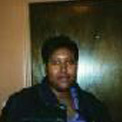Why You Repeatedly Pick Unhealthy Relationships
When you find yourself repeatedly picking the wrong people for friends and partners, you need to figure out why. Many things affect who you are attracted to and who you feel comfortable with. There are three main reasons you choose unhealthy people.
Self-sabotaging patterns:
- Low self-esteem – You believe you don’t deserve better.
- Fear of intimacy – You don’t want to be vulnerable so you pick someone who isn’t capable of intimacy or a committed relationship.
- Fear of abandonment – You pick someone who abandons you because you expect to be abandoned.
- Fear of being alone – Because you don’t want to be alone, anyone will do. Out of desperation, you pick the next person that comes along.
- Fear of commitment – You fear commitment so you pick people who won’t commit to you.
Re-creating childhood patterns:
- Unconsciously, you pick people who are like your father and mother so you can re-create the drama and battles of your childhood. The unconscious motive is to prove you can “win” this time.
- You re-create childhood roles. Example, you were the caretaker for your parent(s) so you pick someone who needs caretaking and fixing. This also insures you are needed so you feel more secure.
- You were abused so you feel like abusive behavior is acceptable and normal. You either don’t know what is healthy or don’t believe you deserve it.
- If your parent(s) engaged in infidelity of any kind, you pick a partner who is also unfaithful. This is true for affairs and sexual addictions.
- Your family had addictions so you pick an addict to rescue or become an addict yourself.
- You felt unloved and abandoned, so you pick someone who doesn’t love you and abandons you. Your motive is to prove that you can make someone love you.
- Your family was dysfunctional so it feels normal.
Ignoring red flags:
- Your parent(s) were addicted, abusive, unavailable, dysfunctional, mentally ill, etc. so this is all you know. Since you think unhealthy relationship dynamics are normal, you are comfortable with dysfunction. Healthy relationships may even feel uncomfortable to you.
- You tell yourself that this person is the exception. You are going to be able to change him/her. If you love enough, do enough, give enough, and are perfect enough, this person will get better.
- You offer trust in a relationship before it is earned because you believe that you should trust people–even when they have been untrustworthy.
- You have learned from childhood and past relationships to ignore your intuition. You ignore the physical signs (headaches, insomnia, stomach aches), emotional signs (fear, uneasiness, feeling uptight, hypervigilance), spiritual signs (feel convicted or uncomfortable, don’t tell people the truth), or mental signs (thinking about the person’s behavior and excusing it, obsessed, worried).
- You don’t take the initiative to get out of the relationship. You are waiting for the other person to decide to end it.
- You don’t trust your own feelings, thoughts, perceptions, and needs. The person tells you that the problems are your fault or that what you feel, think, perceive, and need are wrong. You believe him/her over yourself.
- You are in denial.
- You tell yourself you will leave when he/she does “it” one more time. Then when he/she does it, you say the next time.
- You “re-frame” bad behavior. You make excuses for it, only look at positive traits, or blame the problems on others (bad parents, the boss, prior relationships).
- You have been in the relationship for awhile and are getting immune to the problems. It begins to feel more normal and you begin to discount it.
What you can do to change these patterns:
- Understand why you are picking unhealthy people to have relationships with.
- Understand how your childhood patterns are being recreated.
- Work on your self-esteem and self-image.
- Purpose to get healthy so you will choose healthy people to engage with.
- Get accountability.
- Ask other people you trust to tell you the truth.
- Pay attention to your gut feelings and trust yourself.
- Learn about the types of unhealthy people.
- Keep your eyes open for the red flags.
- Don’t deny what you see.
- Go slowly into any new relationship.
- Ask yourself if you like the person instead of if he/she likes you.
- Believe that it is better to be alone than with someone who isn’t healthy.
- Step out of a bad relationship to get a new perspective.










